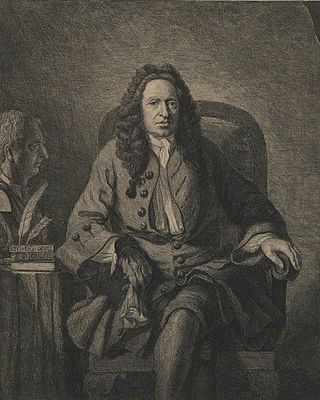Related Research Articles
Sir Richard Whitbourne was an English colonist, mariner and writer.

Sir William Lamond Allardyce, was a career British civil servant in the Colonial Office who served as governor of Fiji (1901–1902), the Falkland Islands (1904–1914), Bahamas (1914–1920), Tasmania (1920–1922), and Newfoundland (1922–1928).

Sir George William Des Vœux was a British colonial administrator who served as governor of Fiji (1880–1885), Newfoundland (1886–1887), and Hong Kong (1887–1891).

Seamus Thomas Harris O'Regan is a Canadian politician and a former cabinet minister in the government of Justin Trudeau. He resigned from cabinet effective July 19, 2024. A member of the Liberal Party, O'Regan was first elected to the House of Commons in 2015, representing St. John's South—Mount Pearl. He was appointed to Cabinet in 2017, and served as minister of natural resources from 2019 to 2021, minister of Indigenous services in 2019, and minister of veterans affairs and associate minister of national defence from 2017 to 2019 and minister of labour from October 26, 2021 until July 19, 2024 and minister of seniors from July 26, 2023 until July 19, 2024.

Daniel Woodley Prowse, was a lawyer, politician, judge, historian, essayist, and office holder.

Hugh Holmes QC was an Irish Conservative Party, then after 1886 a Unionist Member of Parliament (MP) in the United Kingdom Parliament and subsequently a Judge of the High Court and Court of Appeal in Ireland.

Baron Rosmead, of Rosmead in the County of Westmeath and of Tafelberg in South Africa, was a title in the Peerage of the United Kingdom. It was created on 11 August 1896 for the colonial administrator Sir Hercules Robinson, 1st Baronet. He had already been created a Baronet, of Ennismore Gardens in the Parish of St Margaret, Westminster, in the County of London, in the Baronetage of the United Kingdom on 6 February 1891. The titles became extinct on the death of his son, the second Baron, in 1933.

Knocktopher is a village in County Kilkenny, Ireland. It is situated on the R713 road between the villages of Stoneyford to the north, and Ballyhale to the south. It was formerly situated on the N10 national route until being bypassed by the M9 motorway. It is also a civil parish in the eponymous barony of Knocktopher.
Events from the year 1808 in Ireland.

Patrick John McNicholas was an Irish-born politician and political figure in Newfoundland. He represented St. John's Centre in the Newfoundland and Labrador House of Assembly from 1979 to 1989 as a member of the Progressive Conservative Party of Newfoundland.

James Gervé Conroy was an Irish-born lawyer, judge and political figure in Newfoundland. He represented Ferryland on the Irish Shore in the Newfoundland and Labrador House of Assembly from 1874 to 1880 as an Anti-Confederated, in the second term as an anti-confederated Liberal; he helped lead the opposition to William Vallance Whiteway's administration.
Sir Hercules Langrishe, 1st Baronet was an Irish politician.

Bryan Robinson (1680–1754) was an Irish physician, academic and writer.
Bryan Robinson may refer to:

John Monck Mason (1726–1809) was an Irish politician and literary scholar.
James Langrishe was Dean of Achonry from 1791 until 1806 when he became Archdeacon of Glendalough.

Christopher Robinson (1712–1787) was an Irish barrister and judge, who for many years was the senior ordinary judge of the Irish courts of common law. He is best remembered for giving the adventurer Francis Higgins the nickname "The Sham Squire", and for his impressive collection of legal textbooks, which forms the basis of the Library of the King's Inns.
Attorney General Robinson may refer to:
Hercules Robinson was a British Royal Navy admiral.
References
- ↑ Lodge, John "Peerage of Ireland" Dublin 1789 Vol.6 p.75
- Creighton, Phyllis (1982). "Bryan Robinson". Dictionary of Canadian Biography Online . Retrieved 30 October 2009.
- Harris, Charles Alexander (1897). . In Lee, Sidney (ed.). Dictionary of National Biography . Vol. 49. London: Smith, Elder & Co. p. 5.
- Harris, C A; Buckner, Phillip (2004). "Robinson, Sir Bryan (1808-1887)". Oxford Dictionary of National Biography (online ed.). Oxford University Press. doi:10.1093/ref:odnb/23832.(Subscription or UK public library membership required.)